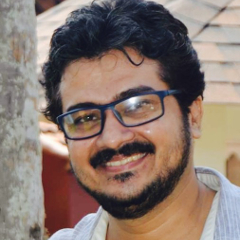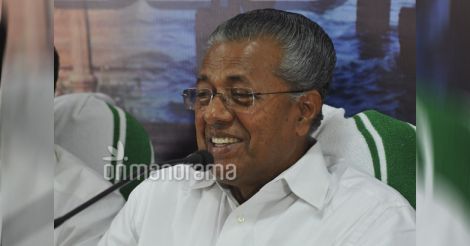Thiruvananthapuram is bustling with preparations for the first anniversary of the Pinarayi Vijayan government but the political class is anxiously looking towards Kochi, where the High Court of Kerala is all set to pronounce its verdict in the SNC-Lavalin case. The air of anxiety is unmistakable even amid the festivities.
The high court verdict is expected on a petition by the Central Bureau of Investigation to declare void a lower court order on November 5, 2013 that exonerated Vijayan and six other accused in the corruption case. The bench of Justice P. Ubaid closed arguments on Apil 12, before the summer recess.
The court can pronounce its verdict any day, unless it wants further explanations from either party. The chief minister’s fate hangs by a thread.
The government can be free of the overhang if the high court accepts the special CBI court’s order in favor of the accused. Vijayan can consolidate his position. His detractors would be silent for a while. Of course, the CBI can go to the Supreme Court but Vijayan would have won the battle.
The other scenario pushes Vijayan into a dark tunnel. If the high court sets aside the special court’s order, the CBI chargesheet would be valid again. Vijayan would be an accused again. He would have to face a lot of opposition if he decides to continue as chief minister.
Party comrade V.S. Achuthanandan and coalition partner CPI would be ready with barbs. The CPM politburo would have to take a tough decision to abide by the party line that wants people accused of corruption to stay away from public offices.
The only solution left before Pinarayi would be to obtain an injunction from the Supreme Court. One of the counsels of the Kerala government, a staunch loyalist of the chief minister, has stayed put in New Delhi even though the Supreme Court is in recess. The vacation bench could be approached in case of an eventuality.
Pinarayi and camp are confident of the case. Especially, after getting Harish Salve, the most expensive lawyer in the country, to argue the case. Salve sought to refute the CBI’s allegations of a criminal conspiracy by presenting the case as mere disputes related to an international business deal.
Salve’s might was matched by CBI’s counsel, M.K. Nataraj, an advocate from Karnataka who was the youngest additional solicitor general in India. He argues that the lower court had not considered the evidence and testimonials the CBI had submitted.
The high court is left with a question of propriety regarding the acquittal of the accused without a trial, rather than getting into the validity of the deal with the Canadian company or the merit of the case.
Lalu Prasad was also let off the hook in 2013, when the Jharkhand High Court acquitted him of criminal conspiracy in the fodder scam. However, the Supreme Court annulled the order two weeks ago.
The Pinrayi government would like the high court judgement to come after the Legislative Assembly has adjourned. The adjournment date has been advanced to May 25 from June 8 and the government justifies the action by citing a request from the opposition camp.
Indeed, Muslim League parliamentary party secretary T.A. Ahammed Kabeer had written to parliamentary affairs minister A.K. Balan to cut short the session in view of the month-long Ramzan fasting. The letter was forwarded to the chief minister, who consulted opposition leader Ramesh Chennithala. When Chennithala checked with the Muslim League leaders, they said they were not aware of such a request.
The Muslim League went into a huddle to discuss the issue and decided to request the government to maintain the practice of convening the house during the fasting period. Iftar feasts were a great opportunity to network beyond political lines, they felt.
The government, however, had already got the request approved by the business advisory committee of the house. The government may have a more convincing reason to cut short the session despite having urgent business like the GST Act to discuss.

























 Kerala CM
Kerala CM